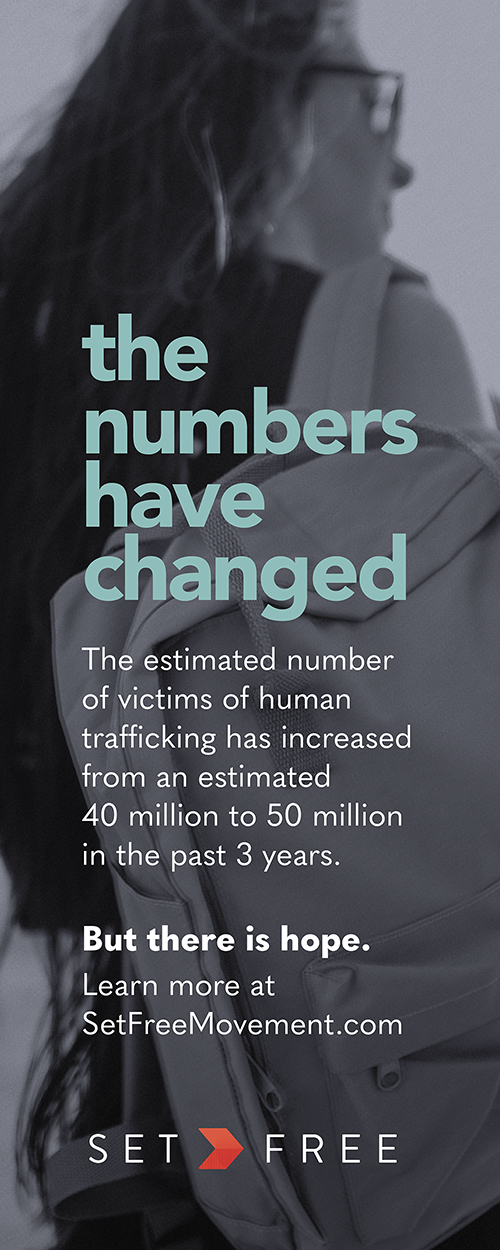By David S. Cushing
Do you remember going to school every year from kindergarten to 12th grade? So do I…
I returned to the high school I graduated from and began working in a special education classroom for another thirteen years. This experience felt like a mix of “Billy Madison” and “Welcome Back, Kotter.” However, this time, my focus wasn’t on reading, writing, arithmetic, middle school anxiety, or deciding who to go to prom with. Instead, it was about serving kids.
In education, I started as an aide, spent eight years as a licensed special education teacher, chaired a ton of meetings, managed cases, spent countless hours on the phone with frustrated parents, and faced the following challenges:
- Was I willing to look past myself and serve the kids?
- How would I navigate a parade of families dealing with their own issues?
- Was I willing to grow and navigate a myriad of cultural and social challenges?
- Could I endure in a field where burnout and turnover were the norm?
I failed a lot but learned a lot too. Today, I no longer worry about how to turn reluctant and anxious teenagers into successful students. Now, I’m able to look back and ask the following question: What can Christians learn from special education?
It’s a broad question, but an important one. To answer it, I’d like to share three principles I learned along the way.
_
“It can feel good to act like the hero, and it’s hard to admit when we need help.”
_
Who is on my team?
When a student with a disability struggles, it is the job of the school to find an appropriate response that meets specific needs. This is called an intervention and comes in one of two forms: individual or team. Individual-based interventions involve one designated staff member, whereas team-based interventions rely on the collective skills of a group. In my experience, teachers often default to individual-based interventions when students struggle.
Why? It can feel good to act like the hero, and it’s hard to admit when we need help.
Consider the example of a student coming in from another school mid-year. It can take months to track down school records. While this is going on, a student typically struggles. These types of cases were frequently referred to me. Over time, I learned it was not my job to seek quick fixes but instead to identify a team, brainstorm strategies, create behavior plans, work collaboratively, communicate with parents and guardians, and re-evaluate things over time.
The wrong question was: How can I solve this?
The right question was: Who is on my team?
As Christians, this is a familiar concept. Consider the story of the four men who carried their paralyzed friend to Jesus (Mark 2:1–5). That day in Capernaum, the friends had to navigate a crowd clamoring for Jesus’ attention. What would have happened if one of the men had taken it upon himself to carry his friend to Jesus? It certainly would have been a lot harder to raise the paralytic to the roof, dig a hole, and lower him down. Remember that what impressed Jesus was their faith. Jesus saw a group of friends asking the right question: Who is on my team?
We live in a fallen world. As Christians, we are often moved with compassion and want to make a difference. However, it is easy to default to the wrong question: How can I solve this? Instead, we need to learn to ask the right question: Who is on my team?
Embrace gradual release.
When a student struggles, parents and guardians typically fall into one of two categories:
Position 1: My child is completely misunderstood. The school must be the issue.
Position 2: My child is drowning and needs every intervention/resource known to humanity.
Over thirteen school years, I learned that the truth is never so simple. Let me give some background. In 1990, Congress authorized the Individuals with Disabilities Education Act. Two of its guiding principles are “Free and Appropriate Public Education (FAPE)” and “Least Restrictive Environment (LRE).”
- FAPE means every child with a documented disability is entitled to schooling that is both without financial cost to the family and appropriate for the student’s needs.
- LRE means students with documented disabilities must be included to the maximum extent possible alongside students without disabilities.
When students struggle, it is never helpful to simply default to either Position 1 or Position 2. Rather, struggling students need appropriate levels of support for a time, with the understanding that this support will fade as the student is gradually released.
It is not uncommon for students who struggle to feel shell-shocked simply by the idea of high school. The school is too big. The halls are too many. The rooms are too loud. At first glance, it might seem best to assume Position 2 and keep the student in a highly restrictive special education classroom for all of high school. In most cases, this is not what is best for the student.
_
“Jesus worked closely with those who learned from Him, observed His miracles, and received His correction until they were ready to be sent out.”
_
This is why it is important to embrace gradual release. As an instructor, I learned to help students build specific skills until they were ready to have less support. The principle is simple: Work directly with a student until it is no longer necessary. I learned to embrace a powerful framework: I do/We do/You do.
- I do. This is the time when a teacher and student meet frequently. All of a student’s time in school is managed. Here the student sees how the teacher organizes a day and how activities can be tracked. During this time, no question is off the table as the student is allowed to talk through absolutely everything.
- We do. This is the phase where a student and teacher work collaboratively. It is still important for them to meet together frequently. This time, however, it becomes the student’s responsibility to organize and track everything collaboratively with the teacher.
- You do. This is the time when it becomes a student’s responsibility to implement his or her own plan. Now the teacher and student typically meet occasionally for a quick check-in, and the teacher’s main responsibility is to provide encouragement.
We see the principle of gradual release in the relationship between Jesus and His followers. Jesus worked closely with those who learned from Him, observed His miracles, and received His correction until they were ready to be sent out. In the account of the sending out the seventy-two (Luke 10:1–20), we see how powerful the principle of gradual release was when utilized by Jesus with His followers.
Recently, I sat in a prayer meeting with members from several evangelical churches. We were given the following prayer prompt: “Pray that Christians in our churches will be open to discipling new believers.” This is a nice prompt, but it begs the question: If I don’t already disciple others, where do I start? Let’s remember what we’ve learned from both special education and Jesus: Embrace gradual release. I do/We do/You do is a great framework for discipleship.
I do. A new believer is invited to spend time with a more mature Christian. During this time the new believer sees what it looks like to attend worship weekly, give regularly, join a small group, study the Bible, pray, etc. During this time, discipleship is all about modeling the habits of the Christian life.
We do. A new believer is invited to try living out these practices while the more mature Christian provides support and friendship. It is important to continue meeting with the understanding that the person being discipled is implementing practices that start to become natural.
You do. The person who is discipled graduates (pun intended here) and is no longer a new believer. He or she is ready to start discipling others and embrace with them the principle of gradual release!
_
“In many situations, we need to learn to become comfortable presenting the truth and letting God do the rest.”
_
Eat the frog early!
I learned this from a colleague over a decade ago. It is the antidote to something I learned never worked for me: the positive sandwich. I began my career thinking it is important to artificially sandwich anything that will be uncomfortable between two positive statements.
Consider the example of truancy. A student can stop attending school to the point where it’s necessary to call a meeting with the student, parents/guardians, and school. On the day of the meeting, inevitably someone speaks up and says, “Let’s make sure we start and end with something positive.” It’s possible that by the time a meeting is called, a student hasn’t been to school for a month or more. As the meeting starts, everyone knows exactly why it was called, especially the student.
By thinking that a positive sandwich is the best way to handle things, the focus quickly becomes trying to make up something to help the student feel good. I remember more than once early in my career when someone would be frustrated and finally say: “Mr. Cushing, we all know why we are here. Let’s just deal with the issue.”
It was helpful when a colleague offhandedly taught me this principle: “On the days you have to eat a frog, do it early in the morning to get it over with!” This has been transformative for me. When it is time to deal with an uncomfortable topic, I try to remember to eat the frog early, so I can get on with everything else.
This concept is found throughout Scripture:
- Elijah was called the “troubler of Israel” by Ahab after he and Jezabel plunged the nation into Baal-worship and a three-year drought. Elijah didn’t first point out some positives in the monarchy. Instead, he was direct and let God determine the outcome (1 Kings 18–19).
- Nehemiah was upset about the plight of Jerusalem in front of Artaxerxes. He told the king what was going on, offered a solution, and waited for God to act (Nehemiah 2).
- Jesus was approached by Nicodemus at night. Jesus didn’t respond by pointing out some positive reforms the Pharisees had brought to first century Jewish society. Rather, Jesus explained the problems with Nicodemus’ beliefs and offered the truth (John 3).
Here’s the bottom line: In many situations, we need to learn to become comfortable presenting the truth and letting God do the rest. This was true for me as a special educator, and it is scriptural and helpful for us today. If we have to eat a frog, we might as well do it as early as possible!
+

David S. Cushing is the lead pastor of Faith Community Church in Plymouth, Massachusetts. He earned his Master of Arts degree at Asbury Theological Seminary, and he is an ordained elder in the Free Methodist Church. David and his wife, Laura, are raising their two children, Ruby and Henry, to love Jesus, know Scripture, and live a life of service to others. In addition to preaching, teaching, and equipping, David co-authors a devotional, “Encouraging Words,” for his congregation.











